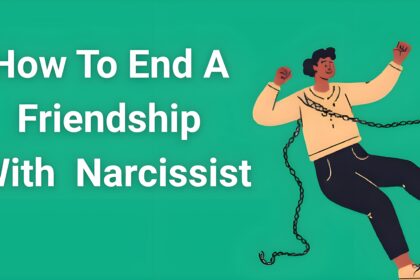Are narcissist bipolar? If you're desperately searching for this answer while trying to understand the extreme mood swings, explosive anger, and confusing behavior patterns of someone you love, you're about to discover a truth so devastating it will completely shatter everything you believed about mental health, relationships, and your own ability to recognize what you're really dealing with. After helping over 10,000 survivors through my top-ranking Substack newsletter escape narcissistic abuse, I can tell you this answer will either set you free or break your heart all over again.
The confusion you're experiencing is understandable—both conditions can involve mood changes, grandiosity, and behavior that feels impossible to predict. You've probably been told they have bipolar disorder, or maybe you've wondered if their extreme behavior could be explained by a mental health condition rather than a personality disorder. This confusion keeps you asking “are narcissist bipolar” while your own mental health deteriorates.
As Fahim Chughtai, a Certified Narcissistic Abuse Specialist and founder of NarcissismExposed.com, I've witnessed thousands of survivors desperately asking “are narcissist bipolar” while being manipulated and controlled by someone using mental health as a weapon. The answer is more complex and more dangerous than most people realize.
The Devastating Reality: Why Are Narcissist Bipolar Is the Wrong Question
Are narcissist bipolar in the clinical sense? While it's possible for someone to have both narcissistic personality disorder and bipolar disorder (called comorbidity), in most cases when survivors ask this question, they're being manipulated by someone who uses mental health claims to excuse abusive behavior. In my work helping survivors through my Personalized Narcissistic Abuse Clarity Reports, I've seen how narcissists weaponize mental health diagnoses to avoid accountability while continuing their harmful patterns.
When you're asking “are narcissist bipolar,” you're usually trying to make sense of behavior that feels too extreme to be just selfishness or cruelty. You want to believe there's a medical explanation that makes their treatment of you understandable and treatable.
Understanding the crucial differences could save your life and sanity.
The Psychology Behind Why Are Narcissist Bipolar Creates Confusion
Every time someone asks “are narcissist bipolar,” they're struggling with a fundamental misunderstanding about the nature of these two very different conditions. This confusion is often deliberately created by narcissists who use mental health language to manipulate:
Personality vs. Mood Disorder: Narcissistic Personality Disorder is a pervasive pattern of behavior, while Bipolar Disorder is a mood disorder with distinct episodes.
Accountability Avoidance: Narcissists often claim mental health issues to excuse their behavior without taking responsibility.
Manipulation Tool: They may exaggerate mood symptoms to gain sympathy and avoid consequences.
Diagnostic Confusion: Some behaviors can appear similar on the surface, making differentiation difficult.
The Science: How Are Narcissist Bipolar Differs Neurologically
Are narcissist bipolar conditions affecting the same brain areas? Research in neuroscience shows that narcissistic personality disorder and bipolar disorder have different neurological signatures, involving different brain circuits and neurotransmitter systems.
Brain Differences That Impact Are Narcissist Bipolar Understanding
Narcissistic Personality Disorder Brain Patterns:
- Reduced empathy-related brain activity
- Abnormal reward processing systems
- Impaired self-reflection areas
- Damaged moral reasoning circuits
Bipolar Disorder Brain Patterns:
- Mood regulation circuit dysfunction
- Neurotransmitter imbalances (dopamine, serotonin)
- Emotional processing irregularities
- Sleep-wake cycle disruptions
The question “are narcissist bipolar” becomes clearer when you understand that these are fundamentally different neurological conditions with different causes, symptoms, and treatment approaches.
The Five Key Differences That Answer Are Narcissist Bipolar
Are narcissist bipolar disorders distinguishable from each other? Absolutely, and understanding these differences is crucial for your safety and sanity:
Difference 1: Nature of Mood Changes
Narcissistic “Mood Swings”:
- Triggered by threats to their ego or loss of control
- Directly related to narcissistic supply availability
- Rage episodes focused on punishing others
- Mood changes serve a purpose (control, manipulation)
Bipolar Mood Episodes:
- Often occur without external triggers
- Follow biological cycles and patterns
- Include periods of genuine remorse during depressive episodes
- Mood changes are symptoms of an illness, not manipulation tools
Difference 2: Empathy and Relationships
Narcissistic Patterns:
- Consistently lack empathy across all mood states
- Use relationships primarily for personal gain
- Show fake empathy only when it serves their purposes
- Maintain exploitative relationship patterns regardless of mood
Bipolar Patterns:
- Maintain capacity for genuine empathy between episodes
- May have relationship difficulties during episodes but show genuine care
- Express authentic remorse for behavior during episodes
- Relationships suffer due to illness, not exploitation
Difference 3: Response to Treatment
Narcissistic Response:
- Resist genuine therapy and self-reflection
- Use therapy to manipulate therapists or gather ammunition
- Show no sustained improvement in relationship patterns
- Focus therapy on others' problems, not their own
Bipolar Response:
- Generally responsive to appropriate medication and therapy
- Show genuine motivation to manage symptoms
- Can maintain healthy relationships with proper treatment
- Take responsibility for illness management
Difference 4: Accountability Patterns
Narcissistic Accountability:
- Never take genuine responsibility for harm caused
- Blame others, circumstances, or “mental health” for their behavior
- Show no authentic remorse or desire to change
- Use mental health claims to avoid consequences
Bipolar Accountability:
- Can take responsibility for actions during episodes
- Show genuine remorse for behavior during episodes
- Work to prevent future episodes and harm
- Don't use illness as an excuse for ongoing harmful behavior
Difference 5: Consistency of Harmful Behavior
Narcissistic Patterns:
- Consistently harmful behavior across all mood states
- Exploitation and manipulation are constant themes
- No periods of genuine kindness or empathy
- Harm others regardless of their own emotional state
Bipolar Patterns:
- Harmful behavior primarily occurs during episodes
- Show genuine care and empathy between episodes
- Periods of normal, healthy functioning
- Illness affects them more than it harms others
If you're struggling to identify exactly whether you're dealing with narcissistic personality disorder, bipolar disorder, or both, my Personalized Narcissistic Abuse Clarity Report provides a comprehensive analysis of your unique situation. In 48-72 hours, you'll receive a detailed breakdown of behavioral patterns, motivations, and a custom roadmap for your next steps.
The Devastating Impact of Believing Are Narcissist Bipolar Excuses
Are narcissist bipolar claims used to maintain abusive relationships? Unfortunately, yes. The belief that their behavior is caused by bipolar disorder rather than a personality disorder often becomes the psychological chain that keeps survivors trapped in abusive relationships.
The Mental Health Manipulation Trap
False Hope for Treatment: Believing they have a treatable mental illness creates hope that they'll improve with medication or therapy.
Excuse-Making: Their harmful behavior gets rationalized as “symptoms” rather than choices.
Victim Guilt: You feel guilty for being upset about behavior they “can't control.”
Delayed Action: You wait for them to get “treatment” instead of protecting yourself.
The Psychological Torture of Mental Health Manipulation
Chronic Confusion: You can't tell when behavior is “illness” versus choice.
Self-Doubt: You question your own perceptions and reactions to their behavior.
Caretaker Trap: You feel obligated to help them manage their “illness.”
Responsibility Reversal: Their wellbeing becomes your responsibility while yours is ignored.
Breaking free from trauma bonds requires more than willpower—it requires a systematic, day-by-day approach that rewires your brain's addiction pathways. My 30-Day Trauma Bond Recovery Workbook provides the neurologically-based recovery system that treats trauma bonds like the addiction they actually are, with specific daily exercises designed to break the cycle permanently.
The Comorbidity Reality: When Are Narcissist Bipolar Both Present
Are narcissist bipolar disorders ever present simultaneously? Yes, it's possible for someone to have both narcissistic personality disorder and bipolar disorder, but this is relatively rare and doesn't excuse abusive behavior.
Understanding Dual Diagnosis
Statistical Reality: Studies suggest that personality disorders and mood disorders can co-occur in approximately 10-15% of cases.
Complexity Factor: Having both conditions makes treatment significantly more complex and challenging.
Accountability Importance: Mental illness never excuses abuse, even when legitimate diagnoses are present.
Treatment Challenges: Both conditions must be addressed for any meaningful improvement.
Red Flags for Mental Health Manipulation
Convenient Timing: They only mention mental health when facing consequences.
Selective Symptoms: Symptoms conveniently appear when they need excuses or sympathy.
Treatment Resistance: They claim to have bipolar disorder but refuse appropriate treatment.
Blame Deflection: All relationship problems are attributed to their “illness.”
The Manipulation Tactics: How They Use Are Narcissist Bipolar Claims
Are narcissist bipolar claims used as manipulation tools? Absolutely, and understanding these tactics is crucial for your protection:
The False Diagnosis Manipulation
Self-Diagnosis: They claim to have bipolar disorder without proper professional evaluation.
Symptom Exaggeration: They dramatically overstate mood symptoms for effect.
Professional Shopping: They seek out professionals who will give them desired diagnoses.
Medication Theater: They may take medications they don't need for appearance of legitimacy.
The Mental Health Weaponization
Sympathy Extraction: Using mental health claims to gain sympathy and support.
Excuse Generation: Every harmful action is blamed on their “condition.”
Treatment Avoidance: Claiming they can't help their behavior due to mental illness.
Victim Reversal: Making you feel guilty for being hurt by their “symptoms.”
The Treatment Reality: Why Are Narcissist Bipolar Matters for Therapy
Are narcissist bipolar disorders treated differently? Yes, and this is why accurate diagnosis is crucial for both safety and treatment effectiveness:
Narcissistic Personality Disorder Treatment
Specialized Therapy: Requires therapists specifically trained in personality disorders.
Long-Term Commitment: Treatment typically takes years with limited success rates.
Resistance Patterns: Patients often manipulate therapy and resist genuine change.
Relationship Focus: Emphasis on understanding impact on others and developing empathy.
Bipolar Disorder Treatment
Medication Management: Often responds well to mood stabilizers and psychiatric medication.
Shorter Timeline: Symptoms can often be managed effectively within months.
Patient Cooperation: Patients typically want relief from symptoms and cooperate with treatment.
Symptom Focus: Emphasis on managing mood episodes and preventing relapse.
The Danger of Misdiagnosis
Wrong Treatment: Treating personality disorder as bipolar disorder is ineffective and potentially dangerous.
Medication Misuse: Narcissists may abuse psychiatric medications or use them as manipulation tools.
Therapist Manipulation: Narcissists often manipulate mental health professionals who aren't trained in personality disorders.
Victim Endangerment: Wrong diagnosis can lead to increased danger for partners and family members.
The Safety Implications: When Are Narcissist Bipolar Questions Signal Danger
Are narcissist bipolar confusion signs of escalating abuse? Often, yes. When survivors start questioning mental health diagnoses, it's frequently because the abuse is escalating beyond what seems “normal.”
Escalation Warning Signs
Increasing Violence: Physical aggression that can't be explained by mood episodes alone.
Strategic Cruelty: Calculated harm that doesn't match bipolar episode patterns.
Manipulation Sophistication: Complex emotional and psychological manipulation beyond mood disorder symptoms.
Isolation Tactics: Systematic isolation that serves control purposes rather than illness management.
Safety Planning Considerations
Professional Evaluation: Insist on proper psychiatric evaluation from qualified professionals.
Documentation: Keep records of behavioral patterns, timing, and triggers.
Support Network: Maintain connections with people who understand both conditions.
Emergency Planning: Have safety plans regardless of diagnosis or treatment status.
For those who can't leave immediately due to financial constraints, children, or other circumstances, my “How to Survive When You Can't Leave Yet” workbook provides daily survival strategies that give you peace and protection while you're still in the situation. This isn't about enduring—it's about thriving strategically until you can safely exit.
The Recovery Process: Moving Beyond Are Narcissist Bipolar Confusion
Are narcissist bipolar questions preventing your healing? Often, yes. Focusing on their diagnosis can distract from your own healing and safety needs.
Shifting Focus from Their Diagnosis to Your Safety
From “What's wrong with them?” to “How can I protect myself?”
- Stop trying to diagnose their condition
- Focus on the impact of their behavior on you
- Make decisions based on actions, not diagnoses
From “Can they be treated?” to “Can I heal?”
- Redirect energy from their potential treatment to your recovery
- Understand that your healing doesn't depend on their diagnosis
- Prioritize your own mental health needs
The Healing Journey After Mental Health Manipulation
Phase 1: Recognition
- Accepting that mental illness doesn't excuse abuse
- Understanding the difference between explanation and excuse
- Recognizing manipulation tactics involving mental health claims
Phase 2: Boundary Setting
- Establishing consequences regardless of their diagnosis
- Protecting yourself from mental health manipulation
- Refusing to be responsible for their illness management
Phase 3: Recovery Focus
- Concentrating on your own trauma healing
- Building support networks that understand abuse dynamics
- Developing healthy relationships with emotionally stable people
The Professional Perspective: What Experts Say About Are Narcissist Bipolar
Are narcissist bipolar distinctions clear to mental health professionals? Qualified professionals can usually distinguish between these conditions, but it requires specialized training and thorough evaluation.
Expert Diagnostic Criteria
Comprehensive Assessment: Proper diagnosis requires extensive evaluation over time.
Behavioral Patterns: Professionals look at long-term patterns rather than isolated incidents.
Relationship History: How they treat others across different relationships and situations.
Treatment Response: How they respond to different therapeutic interventions.
The Importance of Qualified Professionals
Personality Disorder Expertise: Not all therapists are trained to recognize and treat personality disorders.
Manipulation Awareness: Qualified professionals understand how narcissists manipulate the therapeutic process.
Safety Considerations: Trained professionals consider safety implications for partners and family.
Ethical Boundaries: Qualified therapists won't enable abuse regardless of diagnosis.
The Family Impact: How Are Narcissist Bipolar Affects Children and Loved Ones
Are narcissist bipolar confusion harmful to families? Absolutely. The confusion about diagnosis can prevent family members from getting appropriate help and protection.
Impact on Children
Confusion About Mental Health: Children learn that mental illness excuses harmful behavior.
Normalizing Abuse: Kids grow up thinking abuse is a symptom rather than a choice.
Caretaking Burden: Children feel responsible for managing the parent's “illness.”
Delayed Intervention: Mental health confusion can delay necessary protective interventions.
Impact on Partners
Chronic Stress: Constant confusion about mental health creates chronic stress and anxiety.
Delayed Healing: Focusing on their diagnosis delays your own trauma recovery.
Resource Drain: Energy spent on their “treatment” that could go to your healing.
Reality Distortion: Confusion about mental health can distort your perception of reality.
The Hope Beyond Are Narcissist Bipolar Confusion
Are narcissist bipolar questions leading you away from genuine healing? When you stop trying to diagnose them and start focusing on your own recovery, real healing becomes possible.
What Recovery Looks Like
Clarity: Understanding that behavior patterns matter more than diagnoses.
Boundaries: Protecting yourself regardless of their mental health status.
Support: Connecting with others who understand abuse dynamics.
Growth: Developing relationships with emotionally healthy people.
Peace: Finding calm when you stop trying to figure them out.
The Gifts of Moving Beyond Diagnosis Questions
Energy Redirection: The energy spent on “are narcissist bipolar” can go to your healing.
Reality Restoration: Your perceptions become clearer when you stop making excuses.
Relationship Clarity: You learn to evaluate people by their actions, not their explanations.
Personal Power: You reclaim your right to safety regardless of their diagnosis.
Future Protection: You develop skills to recognize manipulation tactics in future relationships.
Key Takeaways: Are Narcissist Bipolar?
- Are narcissist bipolar disorders the same thing? No, they're fundamentally different conditions
- Narcissists often weaponize mental health claims to avoid accountability
- Both conditions can co-exist, but this doesn't excuse abusive behavior
- Your safety matters more than their diagnosis or treatment
- Mental illness never excuses abuse or manipulation
- Focus on behavioral patterns rather than potential diagnoses
- Professional evaluation is crucial for accurate diagnosis and appropriate treatment
Frequently Asked Questions
What if they find out I'm reading about whether narcissist bipolar is accurate?
If you're researching “are narcissist bipolar” and you're concerned about discovery, this suggests you're in a controlling situation. Use private browsing mode, clear your search history, or access information from a safe device. Your right to understand mental health conditions is fundamental. If discovered, don't admit to questioning their diagnosis—simply say you were reading about mental health in general.
How do I know if I'm dealing with someone asking “are narcissist bipolar” versus someone with genuine bipolar disorder?
The key differences involve consistency of harmful behavior, response to treatment, capacity for empathy, and accountability. People with genuine bipolar disorder maintain empathy between episodes, take responsibility for their actions, and show genuine motivation for treatment. When you're desperately asking “are narcissist bipolar,” you're usually dealing with someone whose harmful behavior is consistent across all mood states and who uses mental health claims to avoid accountability.
Is it possible they have both conditions when I'm asking “are narcissist bipolar”?
Yes, comorbidity is possible but relatively rare. However, having both conditions doesn't excuse abuse or manipulation. If someone genuinely has both disorders, they would still need to take responsibility for their behavior, engage in appropriate treatment for both conditions, and work to prevent harm to others. Mental illness, even when legitimate, is never an excuse for abuse.
What if these insights don't apply to my situation when I'm asking “are narcissist bipolar”?
While every situation has unique elements, the fundamental differences between narcissistic personality disorder and bipolar disorder are consistent. If you're struggling to understand whether you're dealing with genuine mental illness or manipulation, my Personalized Narcissistic Abuse Clarity Report provides detailed analysis of your unique circumstances, helping you understand behavioral patterns and their true motivations.
Am I being unfair by questioning their mental health when asking “are narcissist bipolar”?
Questioning mental health claims, especially when they're used to excuse harmful behavior, is not unfair—it's necessary for your safety. You have the right to expect accountability regardless of someone's mental health status. Mental illness may explain behavior, but it never excuses abuse, manipulation, or harm to others.
How do I get proper professional evaluation when asking “are narcissist bipolar”?
Seek out mental health professionals who specialize in both personality disorders and mood disorders. Look for clinicians who understand the difference between these conditions and who won't be easily manipulated. Be prepared that narcissists often resist genuine evaluation or manipulate the process. Your safety and wellbeing should be the priority, not their diagnosis.
Which of your resources would be most helpful when I'm asking “are narcissist bipolar”?
If you're asking “are narcissist bipolar” because you're trying to understand confusing behavior patterns, start with the Personalized Narcissistic Abuse Clarity Report to get a clear assessment of what you're dealing with. If you're struggling to break free from mental health manipulation, the 30-Day Trauma Bond Recovery Workbook is essential for systematic healing. If you can't leave but need to protect yourself from mental health manipulation, the survival workbook provides immediate strategies.
Ready to stop diagnosing them and start healing yourself? Subscribe to my Substack newsletter, one of the top-ranking narcissistic abuse recovery resources, where I share weekly insights, real survivor stories, and evidence-based guidance to help you navigate the complex world of mental health manipulation and abuse. You don't have to figure out their diagnosis—thousands of survivors have found freedom by focusing on their own healing instead.
Remember: Your safety and wellbeing matter more than their diagnosis. Mental illness may explain behavior, but it never excuses abuse. You deserve relationships with people who take responsibility for their actions regardless of their mental health status.






